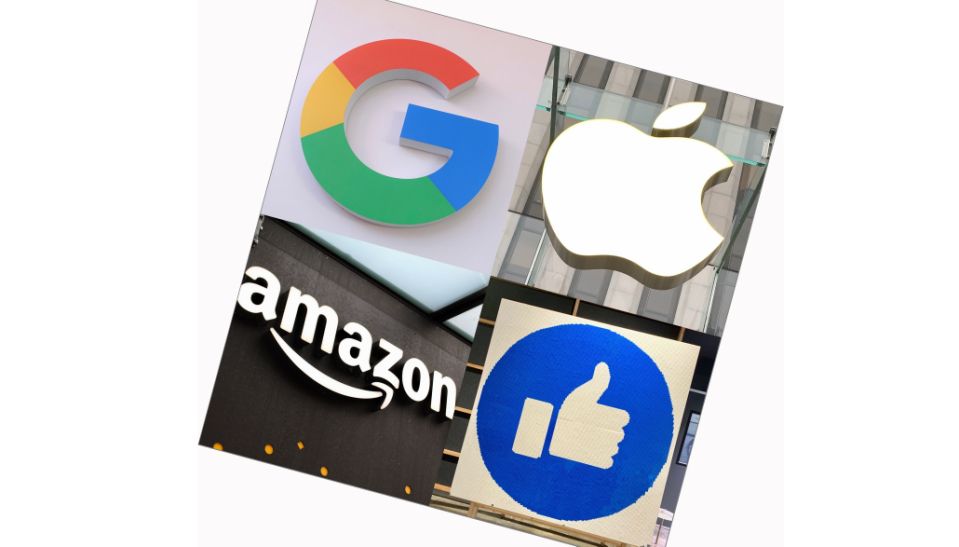
Wall Street chafed at the mixed signals coming from tech earnings, sending shares down Friday — the day after after Amazon, Alphabet, Apple, Facebook and Twitter reported quarterly results for the period ending Sept. 30.
Overall the results themselves weren’t terrible, and in fact some figures exceeded expectations. But they couldn’t hold a candle to the major gains made in previous quarters, while in some cases the lack of guidance for the holiday quarter didn’t help matters.
More from WWD
Various big-tech stocks have fallen anywhere from 2 to 6.4 percent, while the Dow tumbled 400 points on the tech sell-off and election worries.
The news was particularly shocking after Amazon pulled off major gains in its third quarter. The company garnered $96.1 billion in revenue, for a 37 percent year-over-year growth over a period that didn’t even include its marquee annual Prime Day shopping event. It also raked in profit that crushed analysts’ predictions, nabbing $12.37 per share versus the $7.41 expected.
Yet Amazon shares slid as much as 5.5 percent in trading on Friday. Some analysts pointed to a disappointing outlook on operating income, while others mulled the fact that free cash flow dropped, going from $3.2 billion in the same quarter last year to $901 million, thanks to heavy investments in gearing up for new business during the pandemic.
Apple managed to draw $64 billion in revenue, slightly edging out last year’s revenue by 1 percent, even though iPhone sales plunged 20 percent to $26.4 billion. The reason, the company said, is due to the delay in the iPhone 12’s launch to the following holiday quarter.
The company’s not worried about the device’s prospects. Apple chief executive officer Tim Cook called 5G, the phone’s top feature, “a once in a decade opportunity” in an earnings call with analysts Thursday.
In other parts of the business, iPad and Mac sales hit new highs, while the Cupertino, Calif.-based company clocked record sales for its services category. This points to the latter segment — a $14.5 billion business that grew more than 16 percent — becoming a more important part of the company.
According to chief financial officer Luca Maestri, Apple more than quadrupled the paid subscribership for its services, going from 135 million last year to 585 million. Sign-ups for its latest services package, Apple One, begins Friday, so those numbers will come in the following quarter.
Still, Apple did not issue guidance for the first fiscal quarter of 2021, covering the holiday season, leaving some investors nervous.
At Facebook, its revenue performance got a bump of 22 percent compared to last year, with $21.47 billion pouring in and beating the $19.8 billion forecast. Earnings per share of $2.71 also topped the $1.91 expected. But neither figures could overshadow the fact that U.S. and Canadian daily active users fell during this period, from 198 million in the previous quarter to 196 million.
Facebook’s global daily and monthly active user levels look better. These outperformed projections of 1.79 billion DAUs and 2.7 billion MAUs, pulling in 1.82 billion and 2.74 billion, respectively. And despite a major ad boycott from the likes of Patagonia, Hershey’s and other household names, and pressure from civil rights and other groups, the #StopHateforProfit campaign didn’t hamper Facebook’s ad revenue, which increased 22 percent compared to last year.
Monthly users across all of its apps — which include Instagram, WhatsApp and Messenger — ticked upward as well, adding to the 3.14 billion in the second quarter to now total 3.21 billion. And Facebook believes ad revenue in the fourth quarter will beat the third quarter, because of holiday promotions.
But these details couldn’t distract from its disappointing figures in North America. According to the company, the coronavirus stoked U.S. and Canadian user-base figures, but the momentum has leveled off. Facebook now warns that these numbers will either stay flat or even fall in the next quarter.
A lot depends on the behavior of the pandemic, however, which appears to be ratcheting up once more. If lockdowns loosen, people may find more life outside of their screens. If not, then people may stay hunkered down with their devices.
“We believe the pandemic has contributed to an acceleration in the shift of commerce from off-line to online, and we experienced increasing demand for advertising as a result of this acceleration,” said Facebook in its earnings report. “Considering that online commerce is our largest ad vertical, a change in this trend could serve as a headwind to our 2021 ad revenue growth.”
If there was a winner in all this, it was Google. All the major tech stocks, including Amazon, were down on Friday following the earnings reports, except the Alphabet-owned company.
Google’s revenue increased 14 percent compared to the third quarter of 2019. The search giant reported $46.2 billion in revenue, up from $40 billion year-over-year, and net income of $11.24 billion, a jump from $7.06 billion in the third quarter of 2019.
Its performance beat estimates, largely due to YouTube ad revenue. The video platform raked in $5 billion in advertising revenue, representing a 30 percent year-over-year boost. And it’s a marked improvement over the second quarter of 2020, when Google’s revenue fell for the first time.
Now investors have some reason to be optimistic that the advertising slump ushered in by the coronavirus is subsiding.
Revenue from Google ads overall hit $37.1 billion, a gain over the $34 billion brought in this time last year. “This year, including this quarter, showed how valuable Google’s founding product, search, has been to people,” said Alphabet ceo Sundar Pichai, on an earnings call with analysts.
Pichai and Zuckerberg, along with Twitter ceo Jack Dorsey, appeared before the Senate this week — presumably to address Section 230, a key protection for tech platforms against liability for their users’ content. The appearance, however, immediately devolved into political theater, with accusations of bias and even censorship against conservative voices lobbed at the executives. The session amounted to a verbal firing squad of Republican grievance.
Meanwhile, Democratic officials have been more concerned about the outsize power of the tech giants. The Department of Justice filed an antitrust lawsuit against Google earlier this month, alleging that it abuses its market position for the sake of its search and advertising business.
It’s not clear whether the company’s third-quarter performance will factor into this case.
According to Pichai, “we believe that our products are creating significant benefits and we’ll confidently make our case. Our company’s focus remains on continuing our work to build a search product that people love and value.”











